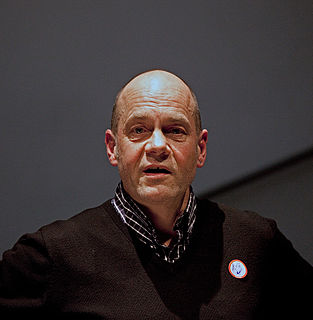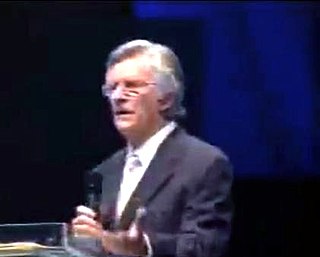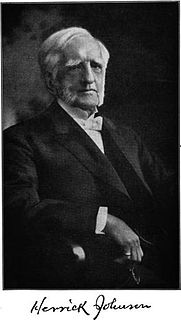A Quote by Paul Stewart
The preaching that ignores the doctrine of Hell lowers the holiness of God and degrades the work of Christ.
Related Quotes
This, then, is the foundation of sanctification in Reformed theology. It is rooted, not in humanity and their achievement of holiness or sanctification, but in what God has done in Christ, and for us in union with him. Rather than view Christians first and foremost in the microcosmic context of their own progress, the Reformed doctrine first of all sets them in the macrocosm of God's activity in redemptive history. It is seeing oneself in this context that enables the individual Christian to grow in true holiness.
God hates the LUKEWARM GOSPEL OF HALF-TRUTHS that is now spreading over the Globe. This gospel says, 'Just believe in Jesus and you'll be Saved. There's nothing more to it.' It ignores the Whole Counsel of God, which speaks of Repenting from former Sins, of Taking up your Cross, of being conformed to the Image of Christ by the refining work of the Holy Spirit. It is totally silent about the Reality of Hell and an After-Death Judgment.
We are not preaching the Gospel of a dead Christ, but of a living Christ who sits exalted at the Father's right hand, and is living to save all who put their trust in Him. That is why those of us who really know the Gospel never have any crucifixes around our churches or in our homes. The crucifix represents a dead Christ hanging languid on a cross of shame. But we are not pointing men to a dead Christ; we are preaching a living Christ. He lives exalted at God's right hand, and He "saves to the uttermost all who come to God by Him."
According to which principle or hypothesis all the objections against the universality of Christ's death are easily solved; neither is it needful to recur to the ministry of angels, and those other miraculous means which they say God useth to manifest the doctrine and history of Christ's passion unto such, who, living in the places of the world where the outward preaching of the Gospel is unknown, have well improved the first and common grace.
Wrath, unlike love, is not one of the intrinsic perfections of God. Rather, it is a function of God's holiness against sin. Where there is no sin, there is no wrath-but there will always be love in God. Where God in His holiness confronts His image-bearers in their rebellion, there must be wrath, or God is not the jealous God He claims to be, and His holiness is impugned. The price of diluting God's wrath is diminishing God's holiness.
No one will be offended if we tell them that they are good people who could be a little better. The offense comes when we tell them that they - and we - are ungodly people who cannot impress God or escape his tribunal. Until our preaching of the law has exposed our hearts and God's holiness at that profound level, our hearers will never flee to Christ alone for safety even if they come to us for advice.
Whom God legally saves, He experimentally saves; whom He justifies, them He also sanctifies. Where the righteousness of Christ is imputed to an individual, a principle of holiness is imparted to him; the former can only be ascertained by the latter. It is impossible to obtain a Scriptural knowledge that the merits of Christ's finished work are reckoned to my account, except by proving that the efficacy of the Holy Spirit's work is evident in my soul.





































